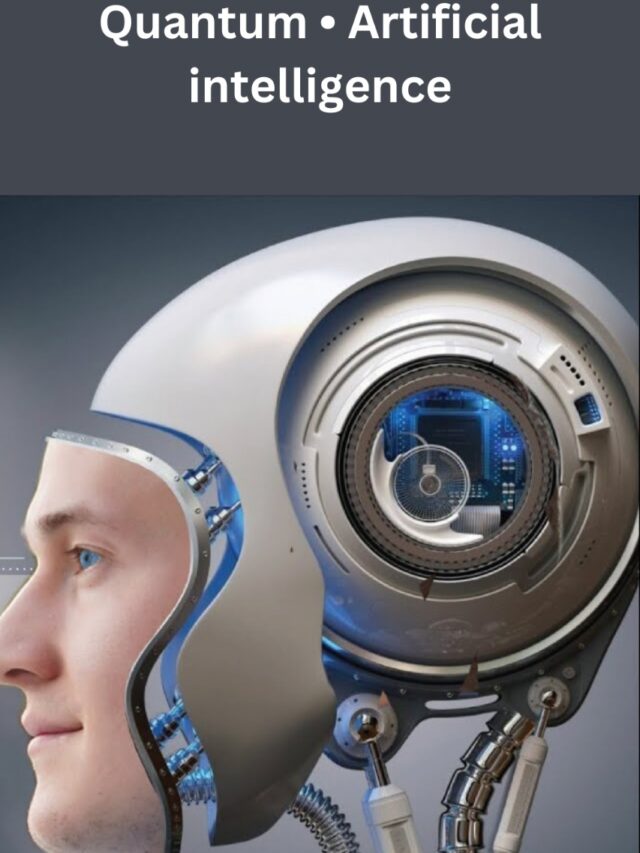In the rapidly evolving landscape of technology, the confluence of quantum mechanics and artificial intelligence (AI) emerges as an enigmatic frontier. What lies at the intersection of these two realms? Are we on the brink of a paradigm shift that might redefine problem-solving capabilities in profound ways? This exploration of “quantum artificial intelligence” delves into the underlying principles, potential applications, and challenges faced in this nascent discipline.
At its core, quantum artificial intelligence endeavors to harness the principles of quantum computing—particularly quantum bits or qubits—to enhance AI methodologies. Traditional computers operate on classical bits, which are constrained to binary states: 0 or 1. In stark contrast, qubits possess the ability to exist in multiple states simultaneously due to the principle of superposition. This attribute holds the potential to exponentially increase computational power, thereby allowing for the processing of vast datasets at speeds that current classical systems could scarcely fathom.
Moreover, quantum entanglement—a phenomenon wherein qubits become interconnected in such a manner that the state of one qubit is dependent on the state of another—opens up new avenues for data manipulation and transmission. What implications does this have for machine learning, a key component of AI? By integrating entangled states into learning algorithms, the capability for faster optimization could facilitate unprecedented advancements in areas as diverse as natural language processing, image recognition, and predictive analytics.
However, as we venture into the theoretical and practical applications of quantum artificial intelligence, one must pose the question: what challenges lie ahead? The synthesis of quantum computing and AI is fraught with complexities, beginning with the current stage of quantum technology, which remains in its infancy. Building a stable and scalable quantum computer is an ongoing endeavor; qubits are notoriously fragile and prone to decoherence, rendering them difficult to maintain for extended periods.
Furthermore, AI relies heavily on large datasets to train machine learning models. Traditionally, these models have required structured input data. In a quantum setting, how can one ensure that data remains intact and usable? Transforming classical data into quantum-compatible formats presents a significant hurdle. Researchers are engaged in the dialogue regarding the potential need for novel data architectures that could best leverage quantum capabilities.
Another area of interest involves the algorithms utilized in quantum artificial intelligence. Classical AI algorithms, such as backpropagation for neural networks, may not directly translate into the quantum realm. Thus, developing quantum-specific algorithms is imperative for realizing the full potential of quantum-enhanced AI. Current advancements include optimizing quantum circuits and exploring variational quantum algorithms that may yield beneficial synergies between machine learning and quantum computing.
The implications of successfully integrating quantum artificial intelligence into society are staggering. By enabling more efficient and effective problem-solving capabilities, quantum AI could revolutionize fields such as drug discovery, financial modeling, and climate forecasting. Imagine a scenario wherein a quantum AI system rapidly analyzes molecular interactions to identify viable new pharmaceuticals faster than traditional methodologies allow. Could this lead to breakthroughs in combating ailments that have long eluded researchers?
Indeed, the prospects are compelling, yet the ethical considerations accompanying quantum artificial intelligence warrant scrutiny. As algorithms become more powerful, ensuring that they operate transparently and equitably remains paramount. Who will curate the data utilized in these systems? What safeguards must be established to prevent algorithmic bias, particularly in critical domains like criminal justice or hiring practices? Engaging with these ethical dilemmas is essential to advance the discourse and foster a responsible approach to quantum AI.
A provocative inquiry arises: as quantum artificial intelligence evolves, will it augment human intelligence or obfuscate it? As machines evolve to process and analyze data with unprecedented efficacy, how do we ensure that human insight and creativity—the hallmarks of true intelligence—are not diminished? Striking a balance between leveraging these powerful tools and maintaining the primacy of human intellect is a compelling challenge that must be addressed as society navigates this technologically enriched future.
The exploration of quantum artificial intelligence is both tantalizing and complex. As researchers continue to unpack the intricacies of quantum phenomena, it becomes evident that understanding quantum mechanics will be pivotal to advancing AI methodologies. The potential advancements across various sectors are vast but must be approached with caution. Questions surrounding the stability of quantum systems, the compatibility of data structures, and the development of robust algorithms remain at the forefront of inquiry.
In summation, quantum artificial intelligence stands at the precipice of possibility and uncertainty. The synthesis of quantum computing with artificial intelligence not only promises to propel technological advancements but also necessitates a rigorous examination of ethical implications and societal impacts. As we continue to probe this multifaceted domain, the engagement and collaboration of physicists, computer scientists, ethicists, and policymakers will be crucial in shaping the trajectory of this brave new world. Thus, as we ponder the playful question of how quantum AI might reshape our understanding of intelligence itself, we must remain vigilant, curious, and committed to responsible innovation.












